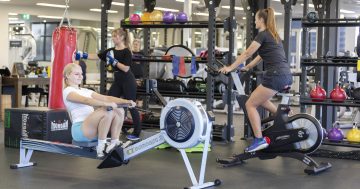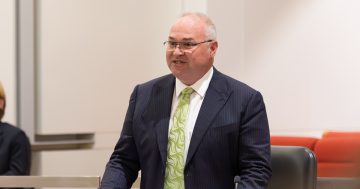As there were 72,000 members of the Canberra Southern Cross Club (CSCC) at last financial report, and every member affected by the proposal will have received their letter and ballot, for most people this isn’t really news, just numbers.
But, for those of you who aren’t in the 1 in 5, this might be.
Wests went into receivership in April 2008, and the call went out for expressions of interest in buying up all the assets (the land, assets, and business operation at Macquarie, and the business, equipment, and leases for Kaleen and Turner), and their 191 gaming machine licenses.
According to the letter the upper limit of value was placed at $8.9mil.
If the bid were successful, would be the CSCC’s first foray north of Lake Burley Griffin, but it wouldn’t be a major cost or unplanned risk, as according to the CSCC 06-07 Financial Report their cash reserves were already in the 8-9mil range at 07-08 financial year’s end, and their notice to members indicates that the acquisition of northside properties as they became available had been an intention ‘for a number of years’.
There are apparently 13,000 members northside, and with CSCC already having an established presence at five clubs around town, the buy could probably lead to a fairly slick and efficient operation.
But, (and there always is one)…
If gaming behaviour stayed the same, and CSCC kept the machines, and run them at the same level as Wests did, this would bring CSCC’s total number of machines (based on 06-07 Ministerial Declarations) from 522 to 713, and generate an additional $5.2mil in annual gross income.
This would create one organisation accounting for just shy of 15% (14.66%) of all gaming income in the ACT.
Bill Stefaniak, who has previously sung the praises of the Wests Rugby Club in Hansard (See Google cache) has been strangely silent on the issue.
ACT Labor also seem to have been quiet about any impact this may have, possibly as their largest single contributer, the Canberra Labor Club, has only 257 licences (7.6% of gaming revenue last declaration period), but contributed 97.3% of ACT Labor funds last year.





















